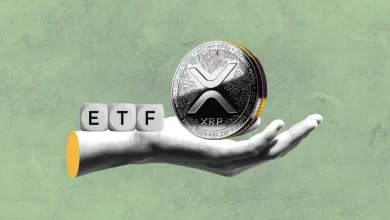South Korea Crypto Regulation: This is What Investors Need to Know

South Korea is enforcing new regulations to crack down on illegal activities in the crypto world.
Crypto exchanges must store 80% of customer deposits in cold wallets and manage user deposits through banks to enhance security.
These regulations aim to protect consumers' interests and ensure the security of their crypto assets.
In a significant move, South Korea’s Financial Services Commission declared on February 7th the Enforcement of the Virtual Asset User Protection Act, set to be in action from July 19th.
To tackle illicit activities in the crypto world, the upcoming regulations, starting in the second half of the year, ban market manipulation, illegal trading, and the use of undisclosed information about virtual assets. Those making unfair profits over 5 billion won might face a life sentence.
A Warning for Wrongdoers
Violators face significant penalties, including imprisonment for over a year or hefty fines ranging from three to five times the ill-gotten gains. If the unjust profits surpass 5 billion won, the stakes are higher, with the potential for a life sentence and fines twice the amount.
Safeguarding Assets: Stricter Measures for Business Owners
As part of the proposed regulations, crypto exchange owners must store a minimum of 80% of customer deposits in cold wallets, providing enhanced security against cyber threats. These wallets, not consistently connected to the internet, offer an additional layer of protection.
Delving into specifics, crypto exchange proprietors must manage user deposits through banks, ensuring a secure environment for buying and selling virtual assets. Additionally, businesses must subscribe to insurance policies to compensate for potential losses from events like hacking or computer failures. If not the insurance the firm may have a deduction with a compensation limit of more than 5% of the current value of crypto.
Also Read: Bitcoin ETFs Could Be Coming to South Korea as Regulator Meets Gary Gensler
Comprehensive Impact of the Act
All businesses falling under the crypto exchange category are obligated to comply with these regulations. The Financial Services Commission holds the authority to take various measures, including suspending business operations, issuing correction orders, filing complaints, or notifying investigative agencies against non-compliant owners.
These proposed regulations underscore South Korea’s collective endeavor to strike a delicate balance between fostering innovation in the digital asset space and ensuring user safety. The measures not only protect consumers’ interests but also provide assurance regarding the security of their crypto assets within the exchanges and crypto firms.
Read More: John Deaton Challenges Security Status of Bitcoin, ETH, XRP Amid New Crypto Regulations













